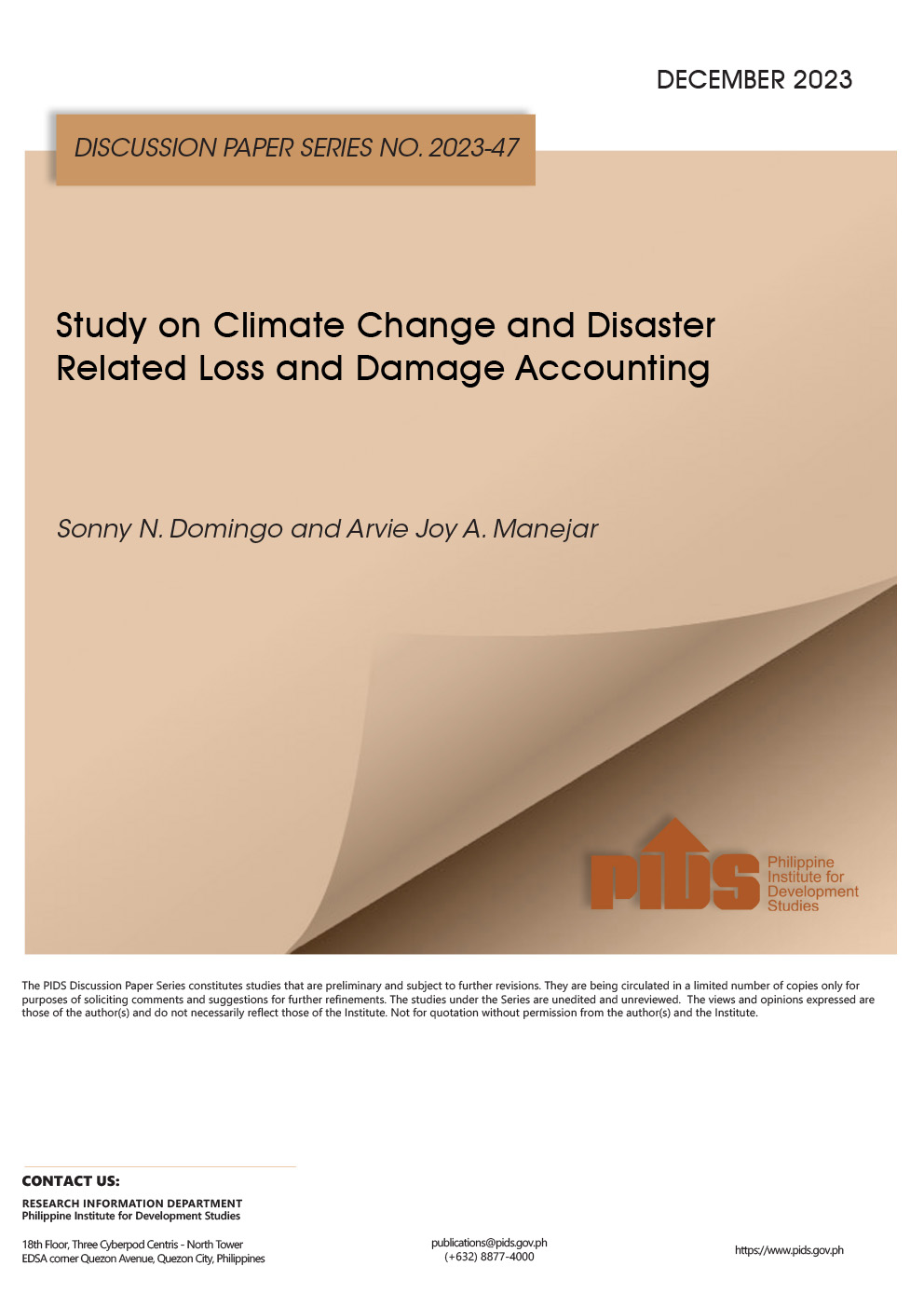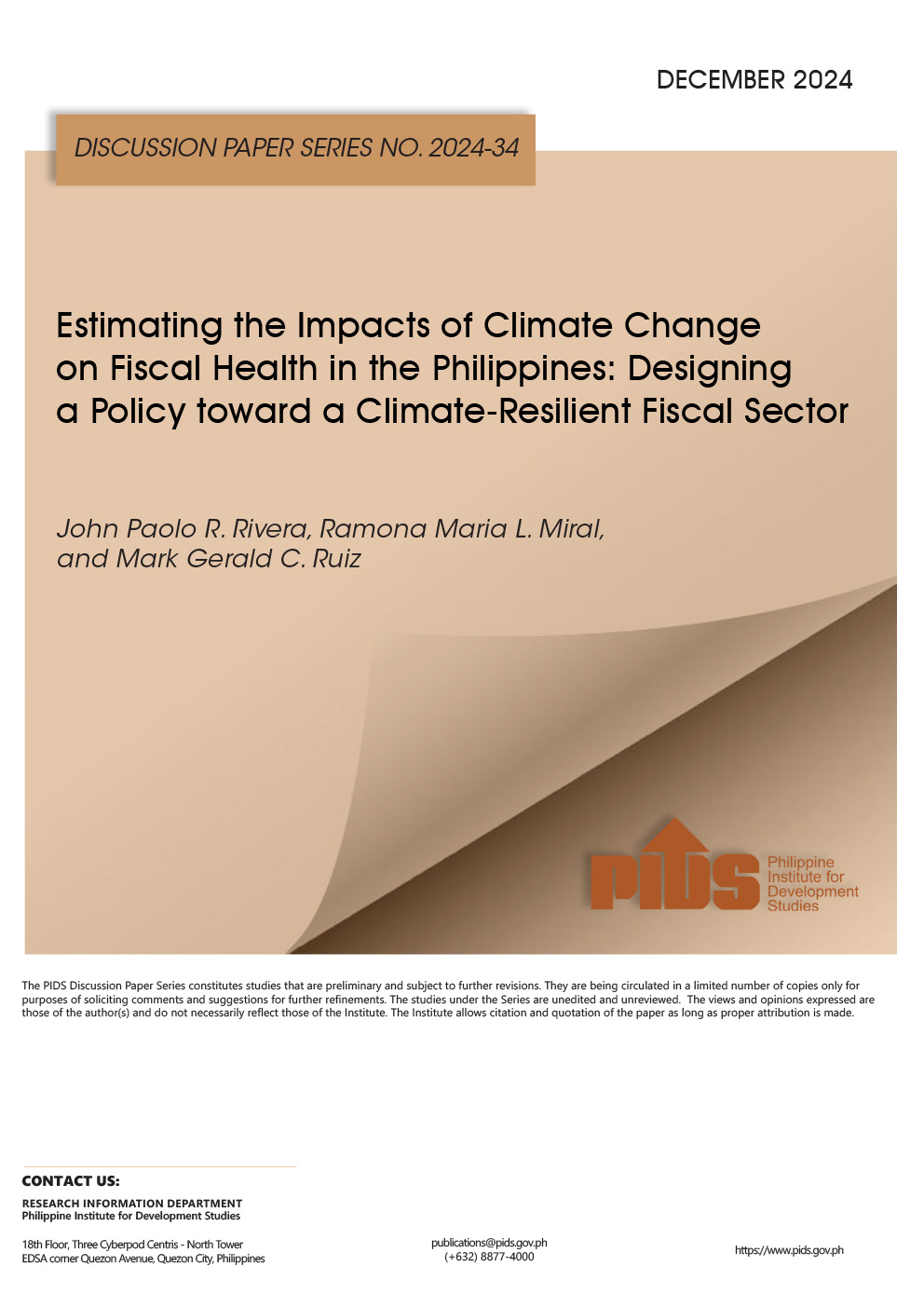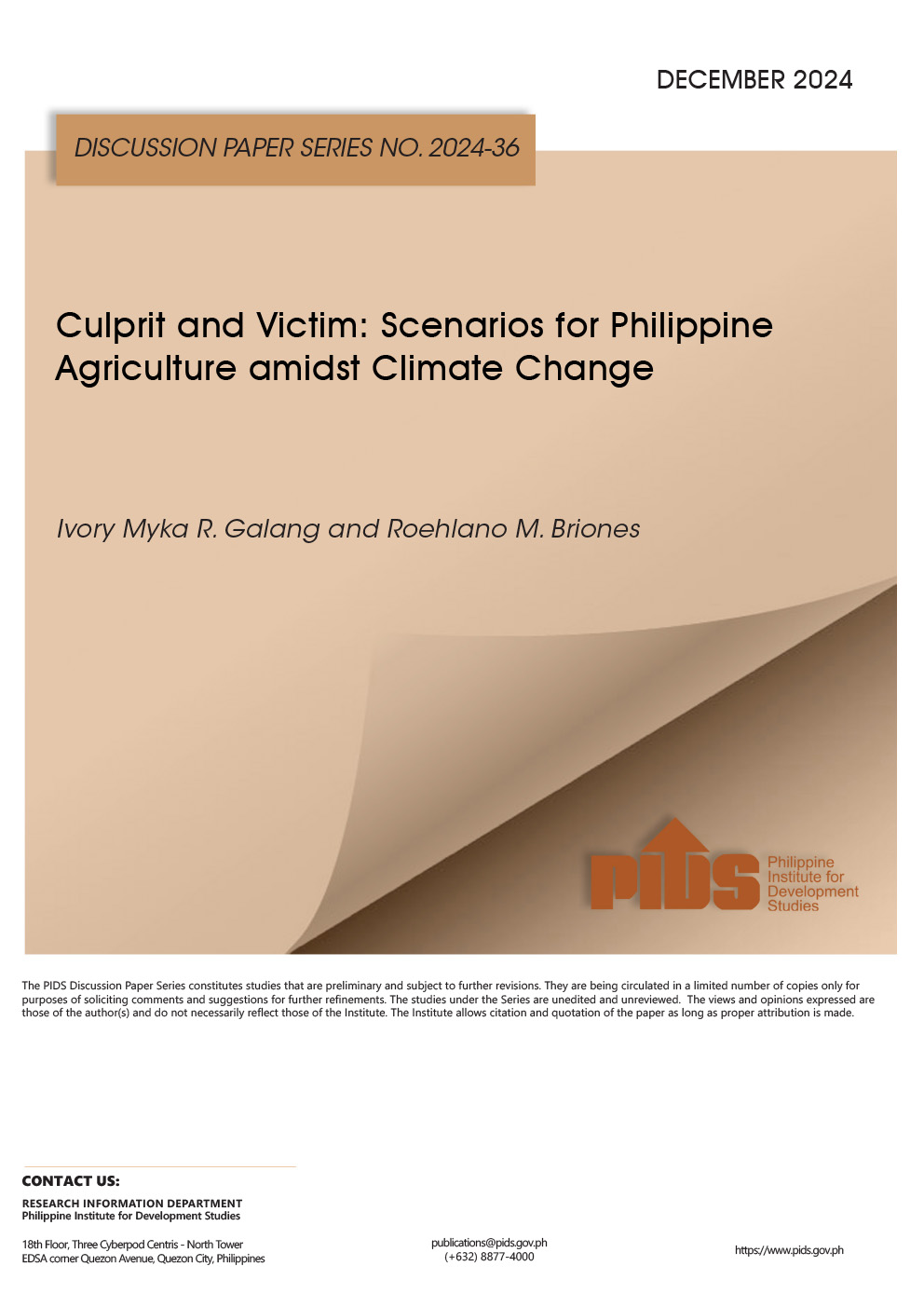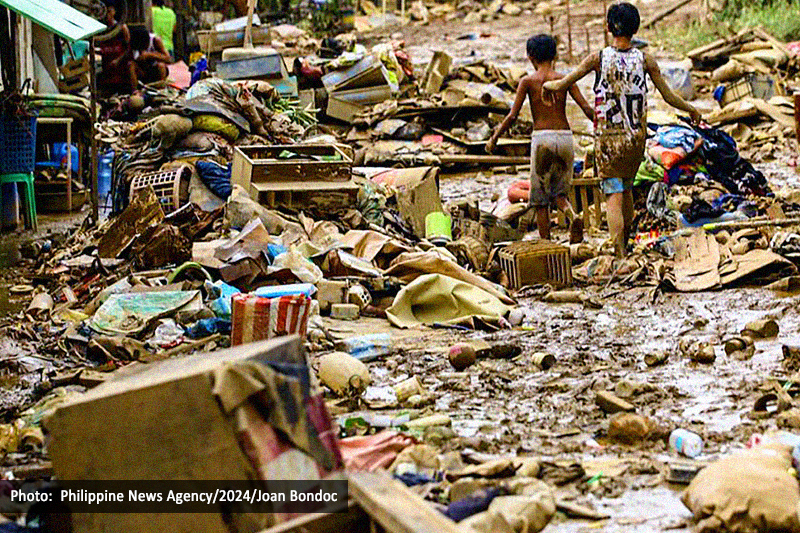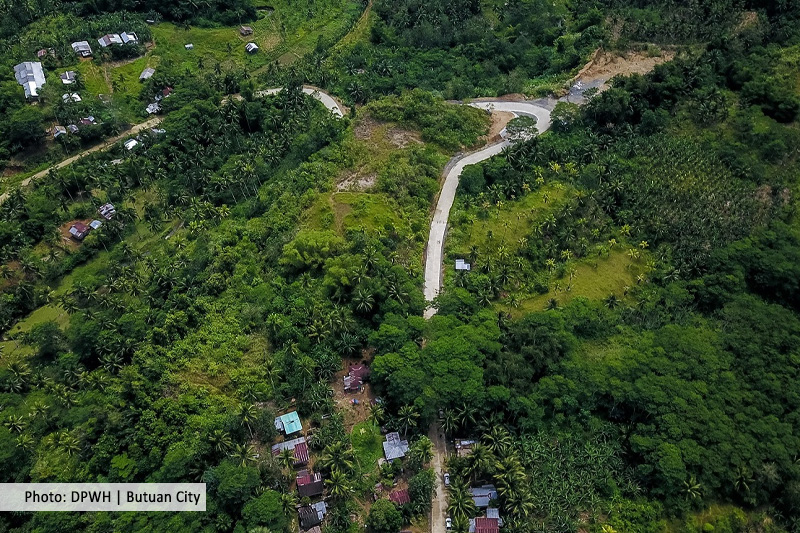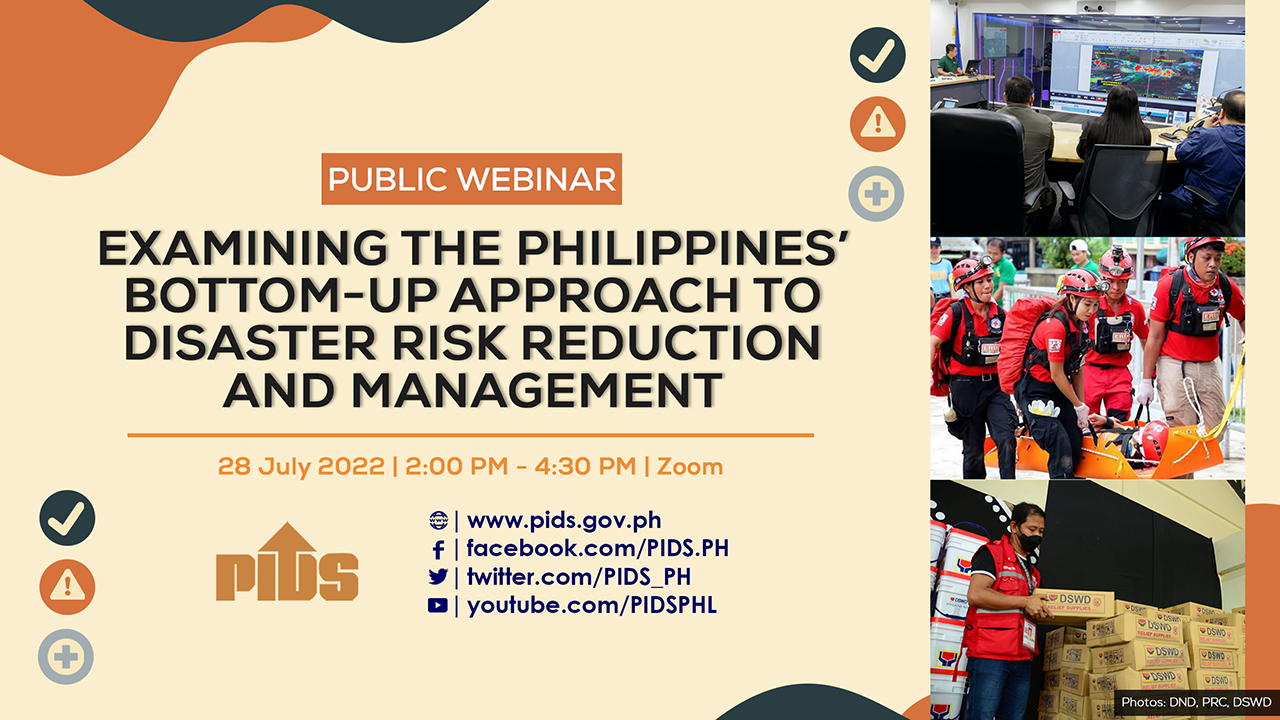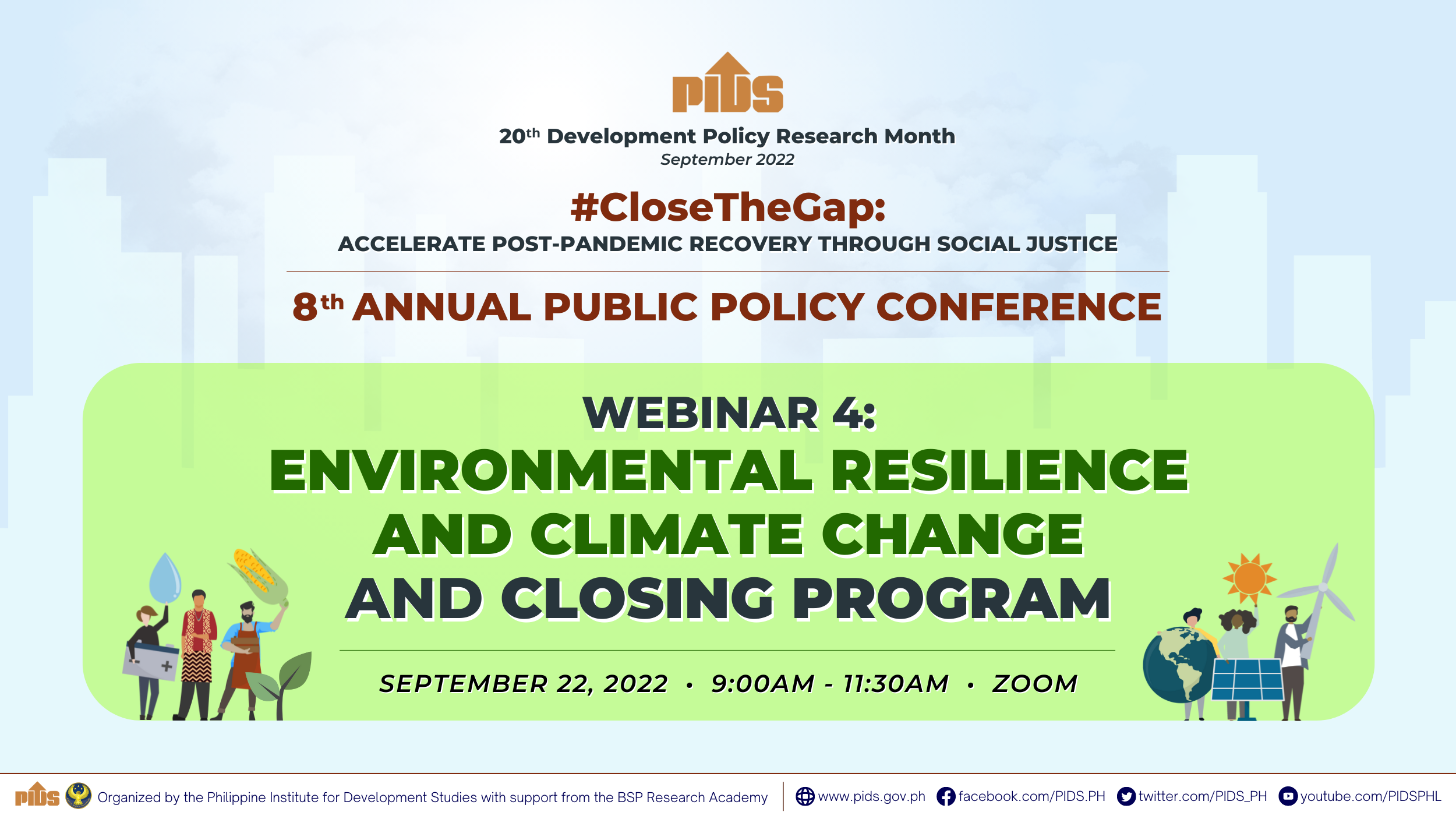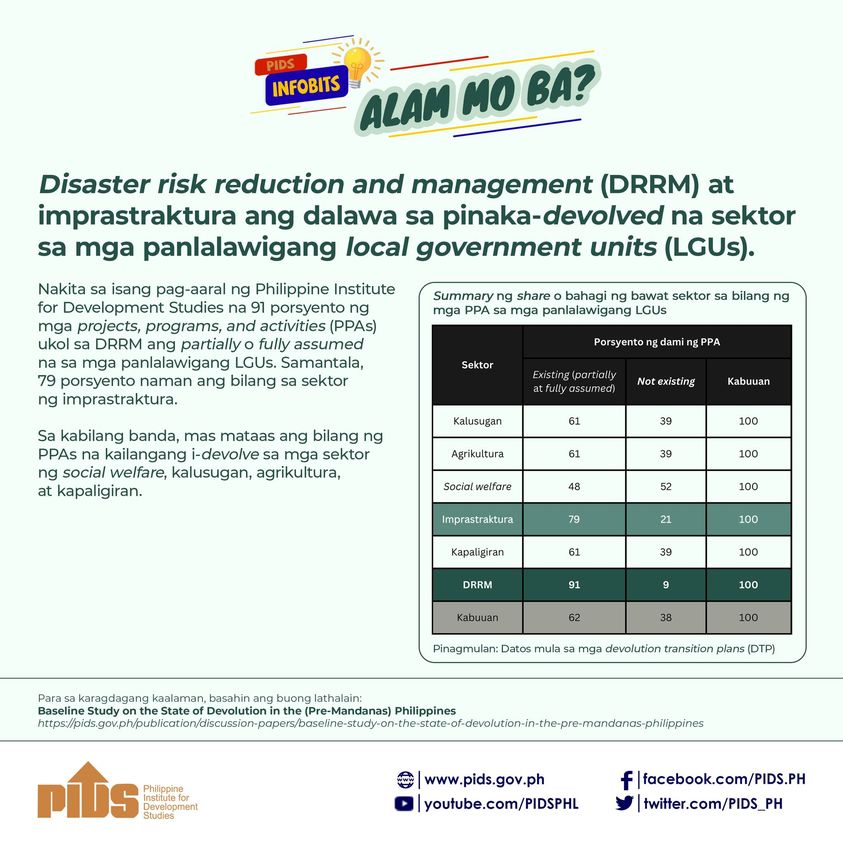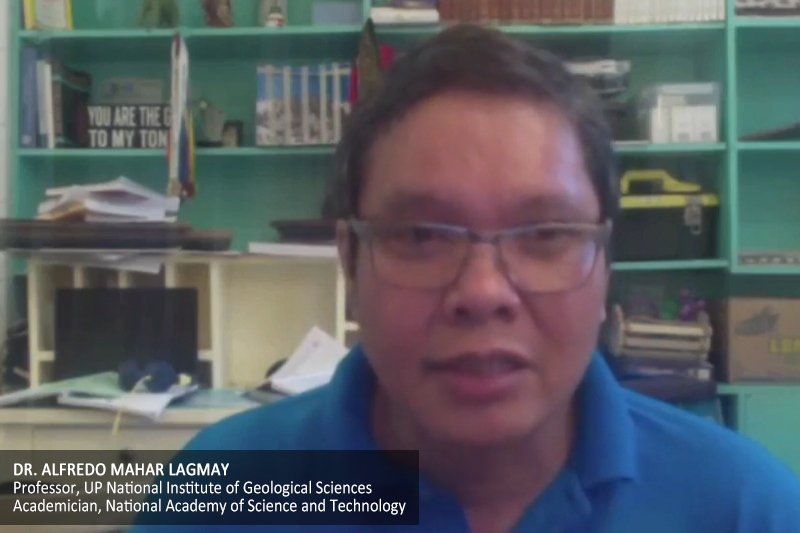
As the country faces more destructive typhoons, intense rains, and severe flash floods due to climate change, it is vital to integrate science-based information in the development plans of local government units (LGUs).
Dr. Alfredo Mahar Lagmay, executive director of the University of the Philippines Resilience Institute (UPRI), underscored this point in a webinar organized by state think tank Philippine Institute for Development Studies (PIDS) as part of this year’s Annual Public Policy Conference (APPC).
According to Lagmay, the UPRI supports the Climate Change Commission (CCC) in training LGUs to formulate their local climate change action plans (LCCAP) and comprehensive land use and development plans through the use of low-cost technologies and smart systems.
He shared that the UPRI has a project on smart systems for climate change with the City of Manila.
“This project, which is in its second phase of implementation, involves climate and disaster risk assessment, land use planning, institutional analysis, and emergency management using the Internet of Things. It will give us sets of data that screen in near real-time. It will allow us to capitalize on this kind of system for better information, which can be used for better science-based decisions or policies,” he explained.
He added that they would be putting sensors in many parts of Manila to get more timely information. “It can be street flood sensors, rain gauges, tide gauges, pollution meters, river water level sensors, and seismometers. This system will be placed in Manila’s operation centers,” Lagmay said.
Aside from Manila, they also “created an online analytics platform and repository for LCCAP and other development plans” in communities in Iloilo under the ReBUILD program funded by the New Zealand Aid, the United Nations, and the CCC.
“Under ReBUILD, we can see different hazards (i.e., 5-year, 25-year, or 100-year rain-return hazards). We are also looking at the representative concentration pathway for 2049 and 2079, as suggested by the Intergovernmental Panel on Climate Change. These scenarios need to be inputted into the planning process,” the National Academy of Science and Technology academician said.
Lagmay emphasized the importance of bringing these data down to the community level.
“It is important that stakeholders understand and do the science. When they participate, they have ownership, which makes them believe that what they are doing is the way to do it,” he said.
Furthermore, Lagmay stressed that open data is key to building people’s trust in digital systems.
“Science also needs to be trusted because methodologies need to be reproducible. If people do not have access to data, then there would be no checks and balances. We believe [that] there must be trust in order for the authorities to communicate well,” he explained.
Lastly, he underscored the need to adopt a whole-of-society approach in all of the government’s climate change and disaster risk reduction and management (DRRM) initiatives.
“The multidisciplinary work requires collaboration with scientists, engineers, social scientists, artists, musicians, mathematicians, statisticians, anthropologists, and psychologists. We need to engage them—as well as stakeholders like NGAs, NGOs, INGOs—to have a transdisciplinary approach in solving disaster-related problems,” Lagmay concluded.
The APPC is the main and culminating activity of the Development Policy Research Month celebration led by PIDS every September. This year’s DPRM theme is “Bouncing Back Together: Innovating Governance for the New Normal”. ###
Watch the video of this seminar at https://www.facebook.com/PIDS.PH/videos/349668142947895/. For more videos of PIDS events, go to https://www.pids.gov.ph/videos.
Dr. Alfredo Mahar Lagmay, executive director of the University of the Philippines Resilience Institute (UPRI), underscored this point in a webinar organized by state think tank Philippine Institute for Development Studies (PIDS) as part of this year’s Annual Public Policy Conference (APPC).
According to Lagmay, the UPRI supports the Climate Change Commission (CCC) in training LGUs to formulate their local climate change action plans (LCCAP) and comprehensive land use and development plans through the use of low-cost technologies and smart systems.
He shared that the UPRI has a project on smart systems for climate change with the City of Manila.
“This project, which is in its second phase of implementation, involves climate and disaster risk assessment, land use planning, institutional analysis, and emergency management using the Internet of Things. It will give us sets of data that screen in near real-time. It will allow us to capitalize on this kind of system for better information, which can be used for better science-based decisions or policies,” he explained.
He added that they would be putting sensors in many parts of Manila to get more timely information. “It can be street flood sensors, rain gauges, tide gauges, pollution meters, river water level sensors, and seismometers. This system will be placed in Manila’s operation centers,” Lagmay said.
Aside from Manila, they also “created an online analytics platform and repository for LCCAP and other development plans” in communities in Iloilo under the ReBUILD program funded by the New Zealand Aid, the United Nations, and the CCC.
“Under ReBUILD, we can see different hazards (i.e., 5-year, 25-year, or 100-year rain-return hazards). We are also looking at the representative concentration pathway for 2049 and 2079, as suggested by the Intergovernmental Panel on Climate Change. These scenarios need to be inputted into the planning process,” the National Academy of Science and Technology academician said.
Lagmay emphasized the importance of bringing these data down to the community level.
“It is important that stakeholders understand and do the science. When they participate, they have ownership, which makes them believe that what they are doing is the way to do it,” he said.
Furthermore, Lagmay stressed that open data is key to building people’s trust in digital systems.
“Science also needs to be trusted because methodologies need to be reproducible. If people do not have access to data, then there would be no checks and balances. We believe [that] there must be trust in order for the authorities to communicate well,” he explained.
Lastly, he underscored the need to adopt a whole-of-society approach in all of the government’s climate change and disaster risk reduction and management (DRRM) initiatives.
“The multidisciplinary work requires collaboration with scientists, engineers, social scientists, artists, musicians, mathematicians, statisticians, anthropologists, and psychologists. We need to engage them—as well as stakeholders like NGAs, NGOs, INGOs—to have a transdisciplinary approach in solving disaster-related problems,” Lagmay concluded.
The APPC is the main and culminating activity of the Development Policy Research Month celebration led by PIDS every September. This year’s DPRM theme is “Bouncing Back Together: Innovating Governance for the New Normal”. ###
Watch the video of this seminar at https://www.facebook.com/PIDS.PH/videos/349668142947895/. For more videos of PIDS events, go to https://www.pids.gov.ph/videos.

